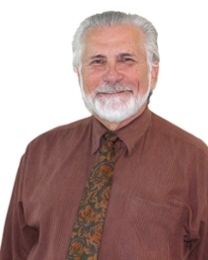NSU Newsroom
SharkBytes
Horizons
This version of NSU News has been archived as of February 28, 2019. To search through archived articles, visit nova.edu/search. To access the new version of NSU News, visit news.nova.edu.
This version of SharkBytes has been archived as of February 28, 2019. To search through archived articles, visit nova.edu/search. To access the new version of SharkBytes, visit sharkbytes.nova.edu.
Managing the Stress of Nuclear Threat
Guest Editorial – Op/Ed
Managing the Stress of Nuclear Threat
Not since the Cuban missile crisis 50 years ago has the threat of a nuclear holocaust, possibly on United States soil, been so salient. Today nine countries have nuclear weapons, enough to destroy the entire earth many times over. For those of us who remember the Cuban missile crisis and the Cold War, thoughts of hiding under furniture during a nuclear strike can still be chilling. For those who did not live during that time, the recent US-North Korea sabre rattling can be terrifying. How does one manage the stress of nuclear threat?
In his 1986 article titled, “The Impact of Crisis Induced Stress on Decision Making,” Dr. Alexander George of Stanford University focused on concerns that such stress could lead to gross irrationalities on the part of top-level policy makers. There is little doubt that the ratcheting up of nuclear war rhetoric makes destructive choices by leaders more likely. But how can those who have no decision-making authority manage the stress of nuclear threat?
Ordinary citizens are limited in what they can do regarding national-level decisions about war and the use of nuclear weapons, although voting, communicating with legislators, and participating in protests may help. Apart from any beneficial effects of taking action in an attempt to affect public policy, the keys to managing the stress and fear are preparation, managing one’s thinking, and setting a positive example for others.
Preparation presupposes the belief that there are actions one can take to increase the probability of survival in a nuclear war. The mere belief in this possibility can be an effective coping strategy and can motivate constructive actions on the part of yourself and your family. Some of these preparatory behaviors are useful for any emergency, such as having a predetermined meeting place for the family (and, perhaps, friends) if problems occur; deciding on a special code word which will help to ensure that any messages relayed to family members can be trusted; and planning an escape strategy with food, water, clothing, and medications to take with you.
Managing one’s thinking so that positive, accepting ideas predominate, especially during difficult times, is a learned skill and should be part of routine preparation for emergency situations. Helpful techniques from yoga, meditation, and mindfulness can be practiced and used even by small children.
Children and adolescents are particularly vulnerable to stress created by news media coverage of negative events and frightening rhetoric. Parents and other close adults serve as models for how children and youth will react, even if those adults don’t recognize or want that responsibility. If adults around them are panicking, young people are likely to do so as well. On the other hand, when parents are calm, they help their offspring and others cope. While reassuring loved ones in challenging times is not easy, it may make all the difference in those who look to you for guidance.
Ralph E. (Gene) Cash, Ph.D. is a licensed psychologist and board certified (ABPP and NCSP) school psychologist, professor of psychology at Nova Southeastern University’s (NSU) College of Psychology, director of NSU’s School-related Psychological Assessment and Clinical Interventions clinic, former president of the Florida Association of School Psychologists (FASP), and former president of the National Association of School Psychologists (NASP).
Nova Southeastern University fully supports an individual’s right to express their viewpoint and opinions. The views expressed in this guest editorial are that of Ralph E. (Gene) Cash, Ph.D. in Nova Southeastern University’s College of Psychology and are not necessarily those of NSU, its President or Board of Trustees.
